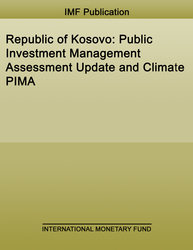
South Africa: Fiscal Transparency Evaluation
South Africa has many elements of sound fiscal transparency practices. Based on an assessment of fiscal transparency practices against the IMF’s Fiscal Transparency Code, South Africa’s practices are strongest in fiscal reporting, followed by fiscal forecasting and budgeting,...
READ MORE...
Volume/Issue:
Volume 2024
Issue 017
Publication date: May 2024
ISBN: 9798400274152
$5.00
Add to Cart by clicking price of the language and format you'd like to purchase
Available Languages and Formats
| English |
Prices in red indicate formats that are not yet available but are forthcoming.
Topics covered in this book
This title contains information about the following subjects.
Click on a subject if you would like to see other titles with the same subjects.
Money and Monetary Policy , Public Finance , International - Economics , Fiscal transparency , fiscal reporting , budgeting , fiscal risks , budget transparency , budget credibility , State capture , procurement deficiency , risk category , Fiscal Transparency Evaluation (FTE) , Budget planning and preparation , Africa
Also of interest
Summary
South Africa has many elements of sound fiscal transparency practices. Based on an assessment of fiscal transparency practices against the IMF’s Fiscal Transparency Code, South Africa’s practices are strongest in fiscal reporting, followed by fiscal forecasting and budgeting, and weakest in fiscal risk analysis. South Africa’s Balance Sheet public sector net worth – including assumptions for the values of non-reported assets – is estimated to be 100 percent of GDP. There is room to improve South Africa’s fiscal reporting, budget transparency, and management of fiscal risks.
Copyright © 2010 - 2026
Powered by:
AIDC



